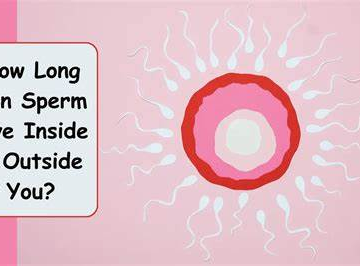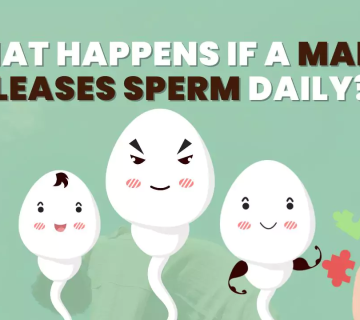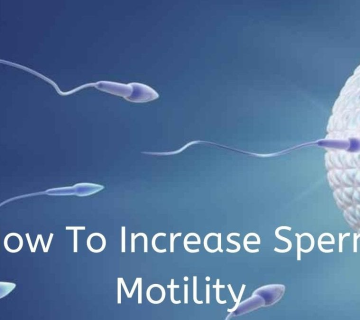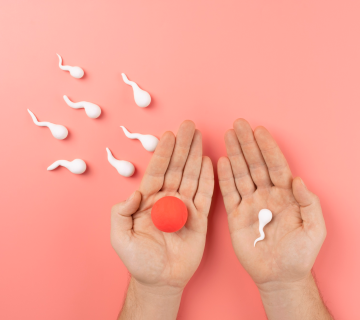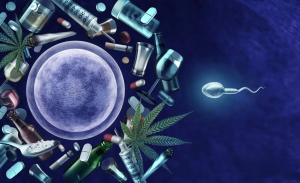
Does Pot Lower Sperm Count? The Truth About Marijuana and Male Fertility
Marijuana, often called “pot” or “weed,” has been used for centuries—first for its potential medicinal properties and later for recreational enjoyment. Over the last few decades, cannabis has become a mainstream topic, with shifting legal statuses and increasing social acceptance. However, for many men who are thinking about their reproductive health or planning to have children, a critical question remains: Does pot lower sperm count?
This question has sparked lively debates, prompted many scientific studies, and led to a swirl of online discussions. In this in-depth article, we will explore the core facts, the latest research, and the less-talked-about points concerning how marijuana use may affect male fertility, sperm health, and overall reproductive well-being. By the end, you’ll have a clearer understanding of the potential impacts of pot on sperm count and how to make more informed choices for your family planning journey.
Understanding the Basics: What Is Sperm Count and Why It Matters
The Role of Healthy Sperm in Fertility
Sperm count refers to the number of sperm present in one milliliter of semen. It’s one important measure of male fertility—though not the only one. A healthy sperm count generally increases a man’s chances of fertilizing an egg, but motility (how well sperm swim) and morphology (the shape of sperm) also matter. Still, having more sperm overall raises the likelihood that at least some will navigate the female reproductive tract, reach the egg, and successfully fertilize it.
Why Men Are Concerned About Sperm Count
Infertility affects millions of couples worldwide, and about one-third of these cases can be traced to male factors. For men who use or have used cannabis—especially those attempting to conceive—a looming question is whether their marijuana habit could negatively affect their fertility. Even if you’re not actively trying to start a family right now, understanding how your lifestyle choices influence reproductive health is important for long-term well-being.
The Basics of Marijuana and Its Main Compounds
THC and CBD
Cannabis contains many active compounds called cannabinoids, but the two that get the most attention are:
- THC (Delta-9-tetrahydrocannabinol): Responsible for the “high” feeling. It can also have effects on anxiety, appetite, and perception.
- CBD (Cannabidiol): Non-psychoactive and often promoted for its potential calming and anti-inflammatory properties.
Most concerns about sperm count center around THC because it interacts strongly with the body’s endocannabinoid system, which regulates various bodily functions, including mood, pain sensation, and possibly even reproductive processes.
Methods of Use and Why They Matter
When we talk about “pot use,” it can mean several methods:
- Smoking (joints, pipes, bongs)
- Vaping (using concentrates or dried herb vaporizers)
- Edibles (brownies, gummies, infused foods)
- Topicals (creams, lotions—though these are less relevant to fertility)
- Tinctures or oils (taken sublingually or mixed with beverages)
The method of consumption can influence the concentration of THC in the bloodstream, how long it stays in your body, and how it might affect reproductive hormones. For instance, smoking may introduce additional toxins that could further harm sperm, while edibles might have a delayed onset but a longer duration of effect. Understanding these differences is key if you’re trying to reduce potential fertility risks.
Scientific Insights: Does Pot Really Lower Sperm Count?
Overview of Existing Studies
Over the past 20 years, researchers have done numerous studies on the relationship between marijuana use and sperm quality. However, not all studies agree. Many indicate that heavy, long-term use of marijuana could lower sperm concentration and affect sperm motility. But some studies find only minor or temporary changes.
“There is growing evidence that frequent marijuana consumption can lead to a decrease in sperm quality over time, especially in individuals already at risk for fertility problems,” explains Orion Nightingale, a fertility specialist who has researched the topic for over a decade.
Key findings from various studies include:
- Reduced Sperm Count: Some research points to a notable drop in sperm count among chronic, heavy users.
- Altered Sperm Shape (Morphology): THC may lead to a higher rate of abnormal shapes, which can impact a sperm cell’s ability to fertilize an egg.
- Hormonal Changes: THC might lower testosterone levels or disrupt other reproductive hormones, although this effect varies greatly.
The Role of Frequency and Dose
An occasional user who smokes a small amount of pot once in a while may experience different effects than a chronic user who consumes high-THC strains daily. According to most medical opinions, the heavier the use, the greater the potential risk to sperm health. Timing can also matter. Because sperm take roughly 74 days to develop fully, a man’s marijuana use in the last two to three months could influence the quality of his current sperm.
Less-Talked-About Factors That Could Affect Sperm Count
A lot of articles mention general points about pot and sperm count, but let’s look at some less-discussed yet crucial factors. These aspects aren’t always covered thoroughly in mainstream articles but can play a major role in fertility.
1. Combined Use of Marijuana with Other Substances
Sometimes, individuals who use marijuana also indulge in tobacco, alcohol, or other drugs. Polysubstance use can amplify harmful effects on sperm quality. Many fertility articles fail to explore how the combination of these substances may work together to reduce sperm count. If you’re trying to optimize your fertility, it’s worth evaluating all your habits, not just cannabis.
2. Impact of Secondhand Marijuana Smoke
We hear about secondhand cigarette smoke frequently, but secondhand marijuana smoke is less discussed. According to some emerging research, being around heavy marijuana smokers could introduce THC and other compounds into the body—even if you’re not directly partaking. While the levels are usually low, repeated exposure may still have some small impact on hormones and overall reproductive health. This aspect is still being studied, but it’s worth considering for men who want to be extra cautious.
3. Vaping vs. Smoking vs. Edibles
Many mainstream articles lump all cannabis use into one category. But the method of consumption can significantly alter how much THC enters your bloodstream and how quickly. For instance:
- Vaping typically delivers a concentrated form of THC with fewer combustion by-products.
- Smoking can lead to more toxins in the lungs, which may also affect circulatory health, indirectly influencing sperm production.
- Edibles bypass the lungs but subject your body to a more prolonged THC effect, which could disrupt hormone regulation over an extended period.
If you do choose to use cannabis, being mindful of the method might help reduce potential harm.
4. Individual Biology and Genetics
Some men’s bodies might be more sensitive to the effects of THC on the reproductive system. Genetics and overall health play a role in how strongly marijuana affects sperm production. This variability partly explains why some men who use cannabis regularly still seem to father children without apparent issues, while others face difficulties.
Potential Mechanisms: How Cannabis Could Affect Sperm
Scientists propose a few ways marijuana may interfere with healthy sperm production:
- Hormonal Interference: THC can bind to receptors in the brain that help regulate hormones like testosterone and follicle-stimulating hormone (FSH). If these signals get disrupted, the body might reduce sperm production.
- Oxidative Stress: Smoking anything—marijuana or otherwise—can introduce free radicals that damage cells. If testicular cells get damaged, sperm production or quality could suffer.
- Endocannabinoid System Imbalance: The body naturally produces its own cannabinoids, involved in many bodily processes including reproduction. Adding large amounts of external THC could upset the balance.
“While many factors can contribute to low sperm count, it’s very possible that regular cannabis use is one piece of the puzzle,” says Dr. Ophelia, a reproductive endocrinologist who often sees couples struggling to conceive.
Newer Research and Emerging Data
Recent Studies in 2023 and Beyond
Although many articles reference older data, there’s newer research that provides fresh insights:
- A 2023 survey of men seeking fertility treatments in a major metropolitan area found that about 35% had used cannabis in the past year. Those who self-reported using it daily had a 12% lower average sperm count than those who did not use cannabis at all.
- Animal studies using mice or rats have shown that chronic THC exposure can affect the genes responsible for healthy sperm production. These epigenetic changes could potentially have impacts beyond a single generation, though human data in this area are still limited.
Differences Between Medical and Recreational Marijuana
One under-explored topic in most popular articles is the difference between medical marijuana and recreational use. If you’re using cannabis with a higher CBD-to-THC ratio under a doctor’s supervision, you might have a different experience than someone using high-THC strains recreationally.
In the words of holistic health coach Caspian Sterling: “Men who are concerned about fertility should talk to a healthcare provider about the specific type of cannabis product they’re using. Not all strains or methods are alike, and some might carry fewer risks.”
Lifestyle Factors That Compound the Risks
Even if you’re on the fence about whether marijuana has a major or minor effect on sperm count, it’s important to consider that many lifestyle choices can stack up and have a combined impact on your reproductive health.
Diet and Nutrition
- High-fat diets and diets low in essential nutrients like zinc, folate, and antioxidants can worsen the effects of toxins on sperm.
- Excessive sugar intake might lead to insulin resistance and metabolic issues that harm sperm production.
Exercise and Weight Management
- Moderate exercise is known to support hormone balance and blood flow, both essential for healthy sperm production.
- Obesity can lead to hormonal imbalances (like higher estrogen levels), which could further reduce sperm count.
Stress and Sleep
- Chronic stress can increase cortisol levels, which may interfere with testosterone production.
- Lack of sleep disrupts the body’s natural repair processes and hormonal cycles, potentially compounding any negative effects from substance use.
Environmental Toxins
- Exposure to pesticides, heavy metals, or chemicals can directly harm sperm.
- Men who work in high-heat environments (like welders or drivers) may have lower sperm counts because the testes do best at slightly lower temperatures than the rest of the body.
Practical Tips for Men Concerned About Fertility
If you’re worried that your marijuana use might lower your sperm count, here are some practical and evidence-based steps to consider:
1. Limit or Pause Cannabis Use
- ✔️ Reduce Frequency: If you’re a heavy user, cutting back gradually could make a significant difference.
- ❌ Avoid Abrupt Changes without Support: If you rely on cannabis for medical reasons, talk to a healthcare provider before stopping.
2. Focus on a Balanced Diet
- ✔️ Include Antioxidants: Foods like blueberries, spinach, and nuts help combat oxidative stress.
- ✔️ Ensure Adequate Protein: Fish, lean meats, beans, and other protein sources support hormone production.
- ❌ Skip Excessive Junk Food: Too much fast food can contribute to metabolic issues.
3. Get Adequate Exercise
- ✔️ Aim for Moderate Activity: Activities like brisk walking, swimming, or cycling can boost circulation and hormone health.
- ❌ Overdo Strenuous Workouts: Extremely intense exercises (like marathon running) might temporarily lower testosterone.
4. Manage Stress
- ✔️ Practice Relaxation Techniques: Meditation, deep breathing exercises, and mindfulness can help.
- ❌ Ignore Chronic Stress: High stress levels can lead to hormonal imbalances.
5. Consult a Specialist
- ✔️ Talk to a Fertility Expert: If you’re concerned, a semen analysis can give you direct feedback on your sperm quality.
- ❌ Rely on Assumptions: Everyone’s body is different, and test results can clarify your specific risks.
Interactive Element #1: Quick Fertility Checklist
Below is a simple checklist to help you gauge areas of your life that might need attention if you’re trying to optimize sperm health. Check any items that apply to you:
| Potential Concern | Check If Applies |
|---|---|
| I use marijuana regularly (daily) | [ ] |
| I also smoke tobacco | [ ] |
| I consume alcohol frequently | [ ] |
| My diet includes a lot of fast food | [ ] |
| I rarely exercise | [ ] |
| I live under high stress conditions | [ ] |
| I get less than 7 hours of sleep | [ ] |
| I haven’t had a semen analysis yet | [ ] |
The more boxes you check, the more areas you might consider adjusting or seeking professional advice on.
Interactive Element #2: Mini Quiz – What’s Your Fertility IQ?
-
True or False: Only the total sperm count matters for fertility.
Answer: False. Sperm motility and morphology are also important. -
Multiple Choice: Which factor can influence how pot affects your sperm count?
A. Genetics
B. Frequency of marijuana use
C. Method of consumption (smoking vs. edibles)
D. All of the above
Answer: D (All of the above). -
Fill in the Blank: THC is known to interact with the body’s ______ system, which can regulate reproductive hormones.
Answer: Endocannabinoid system.
How Long Does THC Stay in Your System?
Another question men often ask is how long THC remains in the body. This is relevant because if you decide to stop using marijuana, you might be curious about when your sperm quality could improve.
- Short-Term Use: THC can be detected in the body for a few days.
- Long-Term Use: Chronic users might test positive for THC for up to a month or more after stopping.
- Sperm Production Cycle: Remember that sperm take about 74 days to develop, so giving yourself at least two to three months of minimal or no THC exposure could show more significant improvements in sperm parameters, if any.
Interactive Element #3: Poll – What Concerns You Most?
(Imagine a simple poll embedded in your blog page.)
Poll Question: If you use marijuana, what’s your biggest concern regarding fertility?
- A: Lower sperm count
- B: Hormonal changes
- C: Effects on future children
- D: Unsure, just curious
(No matter what your readers select, you can offer further content or explanations to guide them.)
When to Seek Professional Help
If you’re worried about your fertility—whether or not you use marijuana—it’s essential to know when to consult a doctor or fertility specialist. You might consider professional help if:
- You and your partner have tried to conceive for over a year (or six months if over age 35) with no success.
- You have a known medical condition (e.g., varicocele, hormonal imbalance, or past testicular injury).
- You experience symptoms like low sex drive, erectile dysfunction, or other signs of possible hormonal issues.
- You have a history of heavy marijuana or other substance use.
“I encourage patients to speak openly about their cannabis use with their healthcare providers so we can get a complete picture of their situation and offer personalized advice,” adds Orion Nightingale.
Debunking Common Myths
Myth #1: “Marijuana Is Natural, So It Can’t Hurt Sperm.”
While cannabis is indeed a plant, not everything “natural” is harmless. Poison ivy and other plant substances can be toxic. THC can disrupt hormone balance and cell functions, so natural doesn’t always mean risk-free.
Myth #2: “I Know Someone Who Smoked Daily and Had Kids Easily.”
Individual genetics and overall health vary greatly. One person might smoke heavily and still conceive without trouble, while another could face fertility problems with moderate use. Anecdotes are not guarantees.
Myth #3: “Only THC Matters; CBD Products Are Always Safe.”
While CBD is generally considered less harmful than THC, some products may contain traces of THC, especially if they are not well-regulated. It’s also possible that very high doses of CBD could interact with reproductive processes in ways not yet fully understood. Always read labels and consult professionals if in doubt.
Exploring Holistic Ways to Support Fertility
If you decide to limit or avoid cannabis to protect your sperm count, you may also want to consider other holistic approaches that enhance reproductive health.
1. Supplements and Herbal Remedies
- Omega-3 Fatty Acids: Often found in fish oil or flaxseed, these support cell membranes, which are vital for healthy sperm function.
- Zinc: Contributes to testosterone production and sperm development.
- CoQ10: Some research suggests it can aid in improving sperm motility.
2. Stress-Reduction Techniques
- Mindfulness Meditation: Just 10–15 minutes a day can help lower stress hormones.
- Yoga or Tai Chi: These practices blend gentle exercise with mental relaxation.
- Journaling: Writing down worries can help clear mental clutter, leaving you more relaxed.
3. Acupuncture
Though not for everyone, some men find acupuncture helpful in reducing stress and potentially boosting blood flow. While there’s limited scientific evidence specifically linking acupuncture to higher sperm counts, some fertility clinics include it as part of a comprehensive approach.
Addressing the Social and Legal Side
Legal Implications
In places where marijuana is legalized for recreational or medicinal use, access is easier. However, legal status doesn’t guarantee safety or provide a free pass when it comes to health impacts. If you’re planning to travel or relocate, keep in mind that federal regulations and other laws may vary significantly.
Social Pressure and Habits
Some men might feel pressured to smoke cannabis in social situations. Others may find it helps with relaxation. Balancing these social or mental health benefits with potential fertility concerns can be challenging. Openly communicating with partners and friends about your priorities and worries can help.
Special Cases: Medical Marijuana for Other Health Conditions
What if you use medical marijuana for chronic pain, anxiety, or other health issues? Abruptly stopping might worsen your underlying condition. In this scenario:
- Talk to Your Doctor: They may suggest alternative treatments or adjust your dosage.
- Consider Strains with Lower THC: A higher CBD ratio might offer some benefits without as much risk of interfering with sperm production.
- Monitor Changes: Regular check-ups and possibly sperm analyses can guide you on whether to continue or modify your medical marijuana plan.
“As Dr. Ophelia points out, healthcare should be individualized. If you rely on medical marijuana for your well-being, you need a tailored strategy for fertility preservation,” reiterates Caspian Sterling.
Going Above and Beyond: Three Less-Discussed Angles
Most articles only skim the surface of cannabis and sperm count. Here are three additional points that you might not find thoroughly discussed elsewhere:
1. The Role of Terpenes
Terpenes are aromatic compounds found in cannabis (like limonene, pinene, and myrcene). Some people speculate that these compounds could interact with the body’s chemistry in ways we’re just beginning to explore. Could terpenes have an impact on sperm quality, separate from THC or CBD? Research is early, but it’s a question worth keeping an eye on.
2. Epigenetics and Future Generations
There’s emerging evidence suggesting that heavy cannabis use might lead to epigenetic changes—alterations in gene expression that can be passed on to offspring. Studies in animals have shown that the children (and even grandchildren) of males exposed to certain substances can face health challenges. While this area is far from conclusive in humans, it might be an essential piece of the puzzle for those concerned about long-term family health.
3. Monitoring THC Levels in At-Home Tests
At-home drug screening kits are often used to see if someone would pass a drug test, but rarely are they used in the context of fertility. Some forward-thinking men are beginning to use these tests to gauge how quickly THC leaves their system if they decide to abstain. This helps them time their fertility attempts more strategically. While at-home test strips don’t measure actual sperm count, they can at least offer insight into how quickly the body is clearing THC.
Table of Common Factors Affecting Sperm Count
Below is a summary table listing factors—some related to marijuana, some not—that can influence sperm health. Use it as a quick reference to see where you might make changes.
| Factor | Positive Influence | Negative Influence |
|---|---|---|
| Marijuana (High-THC Strains) | Possible short-term relaxation | Potential reduction in sperm count & motility, hormonal shifts |
| Tobacco | None | Significant drop in sperm quality, increased toxins |
| Alcohol (Frequent) | May lower inhibitions (socially) | Disrupts hormone production, can reduce sperm quality |
| Diet (Rich in Antioxidants) | Boosts overall cell health | N/A |
| Diet (High in Processed Foods) | N/A | Increases oxidative stress, leads to nutrient deficiencies |
| Exercise (Moderate) | Improves blood flow & hormone balance | N/A |
| Exercise (Excessive) | N/A | Can stress the body, temporarily lower testosterone |
| Stress Management | Maintains hormonal balance | N/A |
| Chronic Stress | N/A | Elevated cortisol, can reduce testosterone & sperm count |
Real Talk: Balancing Lifestyle Choices and Fertility Goals
If you’re considering starting a family soon or simply want to ensure optimal health, it’s wise to assess all lifestyle factors that could be reducing your reproductive potential. Marijuana usage is just one piece of the puzzle—others include diet, exercise, stress, alcohol, and more.
Some men choose to completely stop using marijuana a few months before trying to conceive. Others reduce frequency or switch to lower-THC products. There’s no one-size-fits-all approach, but the best outcomes often come from informed decisions and consistent actions.
Potential Benefits of Temporarily Quitting or Reducing Use
While many articles focus on the negatives of marijuana use, let’s look at some possible positives of taking a break:
- Improved Clarity and Focus: Some people find they have better mental clarity when not under the influence of cannabis.
- Better Respiratory Health: If you typically smoke, your lungs may get a break from harmful particulates.
- Greater Hormonal Balance: Reducing or eliminating THC might help stabilize testosterone and other hormones.
- Potential Sperm Count Boost: As discussed, sperm health may improve over time after cutting back or stopping usage.
Long-Term Outlook and Research Gaps
Scientists agree that more large-scale, long-term human studies are needed to fully understand how cannabis affects sperm count. With marijuana laws changing rapidly around the world, new research opportunities are opening up. This means we’ll likely see more nuanced findings in the coming years.
Still, it’s important to remember that uncertainty cuts both ways. Just because there isn’t 100% conclusive data doesn’t mean there’s no effect at all; it could mean the science needs more time and broader participation to draw strong conclusions.
Final Thoughts on the Question “Does Pot Lower Sperm Count?”
While not every man who uses marijuana will experience fertility issues, the evidence leans toward a real possibility that frequent, heavy cannabis use can lower sperm count and affect overall reproductive health. Whether you’re actively trying to conceive or just planning for the future, it’s wise to weigh the potential impact of pot against other lifestyle factors.
As Orion Nightingale advises, “Knowledge is power. If you know how certain behaviors might affect your fertility, you can make choices that align with your goals.”
Possible Next Steps
- Evaluate Your Current Usage: Keep a diary of how often you consume marijuana and in what form.
- Seek Medical Advice: Especially if you’ve tried to conceive without success.
- Adopt a Healthier Lifestyle Overall: Improve your diet, exercise routine, and stress management strategies.
- Consider a Trial Period Without Cannabis: See how your mind and body feel, and possibly retest your sperm count after a few months.
5 Click-Worthy Titles (Without Colons) That Contain the Main Keyword
- “Does Pot Lower Sperm Count Here’s What Science Reveals”
- “Marijuana Myths and Male Fertility Are You at Risk”
- “Improving Sperm Count Understanding Pot’s Real Effects”
- “Seeking Fertility Answers Does Pot Harm Your Sperm”
- “The Hidden Truth Does Marijuana Threaten Sperm Health”
A Friendly Disclaimer
This article is for informational purposes only and does not replace professional medical advice. Everyone’s body reacts differently to substances. If you have concerns about fertility, sperm health, or the impact of marijuana use, consult a qualified healthcare provider or fertility specialist for personalized guidance.
